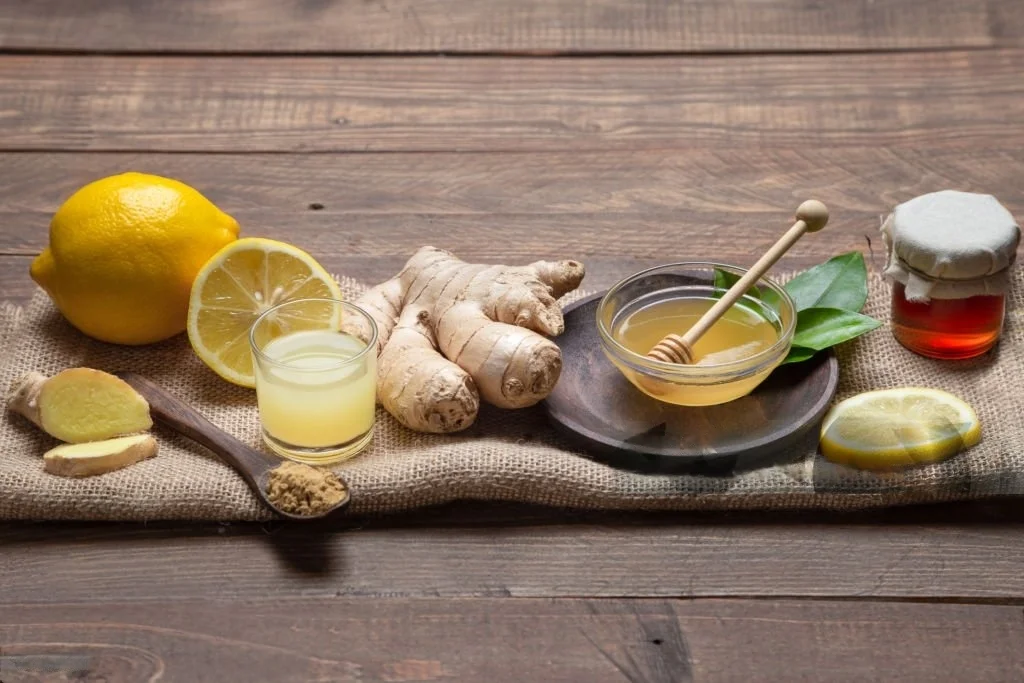Table of Contents
Introduction
Healthy Habits for a Strong Immune System | Expert Tips 2024 In today’s fast-paced world, maintaining a strong immune system is more crucial than at any time in recent memory. This article gives master-approved tips and strategies to assist you with building a strong, versatile immune system through healthy way of life habits. Discover the science behind the immune system, learn about essential nutrition, exercise, and taking care of oneself practices, and investigate successful stress management techniques. Engage your body’s natural protections with these demonstrated healthy habits.
Strengthening your immune system is not just about avoiding sickness; it’s about engaging your body to work at its ideal, warding off contaminations, and advancing overall prosperity. By incorporating these immune-helping habits into your daily everyday practice, you can encounter the advantages of a strong immune system and enhance your quality of life.
Prepare to open the force of your immune and embark on an excursion toward optimal immune health. How about we make a plunge and investigate the master-approved strategies that can assist you with supporting resistance and strengthening your immune system?
Key Takeaways
- Understand the fundamentals of the immune system and its role in maintaining overall health
- Discover the impact of balanced nutrition, regular exercise, and adequate sleep on immune capability
- Learn successful stress management techniques to help a powerful immune reaction
- Investigate the importance of hydration and the role of enhancements in supporting resistance
- Perceive the advantages of an active way of life and maintaining social associations for immune health
- Avoid harmful habits like smoking and inordinate alcohol utilization that can weaken the immune system
Understanding the Immune System

The immune system is an intricate organization of cells, tissues, and organs that cooperate to safeguard the body from harmful pathogens, for example, infections, bacteria, and contaminations. It is the body’s natural guard mechanism, answerable for distinguishing and neutralizing threats to maintain overall health and prosperity. Understanding the fundamental parts of the immune system and its capabilities is crucial for creating successful strategies to strengthen and uphold it.
What is the Immune System?
The immune system is a profoundly sophisticated biological system that plays a critical role in the body’s protection against disease and contamination. It is comprised of a vast array of specialized cells, organs, and particles that work collaboratively to distinguish and eliminate foreign invaders, for example, infections, bacteria, and other pathogens, while also perceiving and obliterating malfunctioning or damaged cells inside the body.
The Role of the Immune System
The primary capability of the immune system is to maintain the body’s overall health and prosperity by safeguarding it from harmful threats. This includes an intricate course of distinguishing, neutralizing, and eliminating potential threats, as well as regulating the body’s reaction to limit damage and advance healing. By understanding how the immune system functions, individuals can take proactive moves toward help and strengthen their natural protections, ultimately enhancing their versatility and overall quality of life.
Healthy Habits for a Strong Immune System
Adopting a holistic approach to health and well-being is essential for building a strong immune system. This segment frames three key healthy habits: balanced nutrition, regular exercise, and adequate sleep. By incorporating these practices into your daily practice, you can give your body the necessary supplements, physical activity, and rest it necessities to work optimally and ward off ailment.
Balanced Nutrition
A supplement-rich eating routine is the foundation for maintaining a vigorous immune system. Incorporate a variety of immune-helping food varieties into your meals, like natural products, vegetables, entire grains, lean proteins, and healthy fats. These food varieties are packed with essential vitamins, minerals, and antioxidants that help the body’s natural protection against pathogens.
Regular Exercise
Physical activity plays a crucial role in supporting immune capability. Regular exercise can further develop circulation, decrease inflammation, and enhance the proficiency of immune cells. Aim for at least 30 minutes of moderate-power exercise, like brisk walking, cycling, or swimming, most days of the week to reap the immune-helping benefits.
Adequate Sleep
Getting sufficient quality sleep is essential for maintaining a strong immune system. During sleep, the body repairs and regenerates immune cells, allowing them to work all the more really. Aim for 7-9 hours of continuous sleep each night to help your immune health and enhance your body’s natural protection.
Stress Management Techniques
Constant stress and immune capability are firmly interlaced, as drawn-out openness to elevated degrees of stress can weaken the body’s natural guards. To manage stress for better health and back a hearty immune system, integrating compelling relaxation techniques for the immune system into your daily routine is crucial.
One strong stress management apparatus is the practice of meditation. By engaging in care meditation, you can train your brain to turn out to be more present, lessen overthinking, and alleviate the physiological side effects of stress. This, thus, can assist with mitigating the negative impact of stress on immune capability and advance a healthier, more balanced immune reaction.
Another valuable method is profound breathing exercises. Taking the opportunity to dial back, center around your breath, and intentionally inhale and exhale can set off the body’s relaxation reaction, bringing down stress chemical levels and supporting the immune system’s capability. Incorporating basic breathing practices into your daily life can be a profoundly successful way to manage stress for better health.
Engaging in delicate physical activities, like yoga or tai chi, can also be beneficial for stress and immune capability. These psyche body practices join controlled developments, breath work, and meditation, assisting with alleviating strain, further developing circulation, and advancing a feeling of calm and prosperity that can strengthen the immune system.
Keep in mind, that finding the right relaxation techniques for the immune system that resonate with you and making them a consistent part of your way of life is key to managing stress and supporting your body’s natural safeguards against sickness and disease.

Importance of Hydration
Maintaining legitimate hydration is a crucial part of supporting a strong and versatile immune system. Water plays a vital role in various physiological cycles, including the regulation of internal heat levels, the transportation of essential supplements, and the elimination of waste items. By staying all around hydrated, you can assist with guaranteeing your immune cells’ capability optimally and answering potential threats.
Water Intake Recommendations
The suggested daily water intake can vary based on factors, for example, age, orientation, activity level, and overall health status. As a general rule, the water intake rules recommend that adults ought to aim to drink somewhere in the range of 11.5 and 15.5 cups (2.7 to 3.7 liters) of liquids each day. This incorporates water from the two beverages and food sources. It’s memorable’s important that individual requirements may vary, and it’s ideal to talk with a healthcare professional to decide the optimal water intake for your particular necessities.
Other Hydrating Beverages
While water is the foundation for maintaining hydration for immune health, other hydrating beverages can also uphold the immune system. Herbal teas, like green tea and chamomile, are known for their antioxidant properties and can assist with decreasing inflammation, which is essential for a healthy immune reaction. New natural product juices, particularly those high in vitamin C, can also give additional supplements and hydration to support the immune system.
Healthy Habits for a Strong Immune System
Building a strong and versatile immune system requires a holistic approach that combines several healthy habits. By incorporating a comprehensive immune-helping way of life into your daily everyday practice, you can effectively support your body’s natural protection and enhance your overall prosperity.
At the core of this combination of healthy habits are the essential components discussed in the past sections: a balanced diet, regular physical activity, adequate sleep, stress management, and legitimate hydration. At the point when these key factors are addressed collectively, they work synergistically to strengthen your immune system and work on your resistance to disease and infection.
Embracing this holistic approach to immune health enables you to take charge of your prosperity and cultivate a way of life that sustains and supports your body’s natural guard mechanisms. By making careful choices and integrating these healthy habits into your daily life, you can support your immune system and partake in a greater feeling of vitality and resilience.

The Role of Supplements
While a balanced, supplement-rich diet is the foundation for a strong immune system, certain supplements can offer additional help and enhance your body’s natural protection. In this section, we’ll investigate the benefits of three key immune-helping supplements: vitamin C, zinc, and probiotics.
Vitamin C
Vitamin C is a strong antioxidant that plays a crucial role in supporting immune function. This essential supplement animates the production and activity of white platelets, which are answerable for warding off infections and diseases. Various examinations have shown that adequate vitamin C intake can reduce the duration and seriousness of common colds, as well as potentially enhance the body’s reaction to additional extreme diseases. Specialists recommend aiming for 75-90 milligrams of vitamin C each day, with higher dosages up to 2,000 milligrams during seasons of sickness or increased stress.
Zinc
Zinc is another crucial mineral for maintaining a strong immune system. It supports the turn of events and function of immune cells, including Lymphocytes and natural executioner cells, which are essential for shielding the body against pathogens. Zinc also controls inflammatory reactions and advances wound healing. Incorporating zinc-rich food varieties, such as seafood, meat, vegetables, and nuts, into your diet can assist with guaranteeing optimal levels. For supplementation, the recommended daily intake is 8-11 milligrams for adults.
Probiotics
Stomach health and immune function are closely entwined, and probiotics can play a significant role in supporting both. These beneficial bacteria assist with maintaining a healthy stomach microbiome, which thus strengthens the immune system by regulating inflammatory reactions and advancing the production of immune-supporting compounds. Studies have shown that probiotic supplementation can reduce the risk and duration of respiratory infections, as well as enhance the body’s reaction to vaccinations. While choosing a probiotic supplement, search for a great formula that contains a different array of live, active cultures.
By incorporating these immune-helping supplements into your daily schedule, along with a balanced diet, regular exercise, and stress management practices, you can give your body the additional support it requires to maintain a vigorous and strong immune system.
Staying Active and Social

Maintaining an active way of life and sustaining social connections are crucial components of a strong and versatile immune system. Regular physical activity and engaging with others can give a huge number of benefits that support the body’s natural guard against sickness and disease.
Benefits of Physical Activity
Engaging in regular exercise and an active way of life has been shown to have a profound impact on the immune system. Physical activity can further develop circulation, which assists the immune cells and other essential components with moving all the more efficiently through the body. Additionally, exercise can reduce inflammation, a key contributor to weakened immune function, and enhance the activity of immune cells, such as Lymphocytes and natural executioner cells, which are liable for recognizing and eliminating threats.
Maintaining Social Connections
Encouraging strong social connections and engaging in social activities is beneficial for our mental prosperity, however, it also plays a crucial role in supporting the immune system. Social interactions can assist with reducing stress, a major factor that can stifle the immune reaction. Furthermore, being socially active and connected with others advances overall prosperity, which thus can support the body’s natural protection against ailment and disease.
Avoiding Harmful Habits
While adopting a healthy way of life is crucial for maintaining a strong immune system, it’s equally important to avoid certain behaviors that can weaken the body’s natural safeguards. Two of the most detrimental habits that can have a significant impact on immune function are smoking and excessive alcohol consumption.
Smoking

Smoking is broadly recognized as one of the unhealthy habits that weaken the immune system. The chemicals and poisons present in tobacco smoke can directly damage the cells and tissues answerable for immune function, reducing the body’s ability to ward off infections and ailments. Various examinations have shown that smoking and immune function are negatively correlated, with smokers being more susceptible to many respiratory infections, including pneumonia and influenza.
Excessive Alcohol Consumption
Similarly, alcohol and immune health are closely connected. Excessive alcohol consumption can impair the immune system by disrupting the production and function of immune cells, as well as slowing down the body’s inflammatory reaction. Chronic heavy drinking can lead to a weakened immune system, making individuals more inclined to infections, autoimmune disorders, and even certain sorts of cancer.
To maintain a strong immune system, it’s crucial to avoid harmful habits that can weaken it. By stopping smoking and restricting alcohol consumption, you can take a significant stage towards supporting your body’s natural safeguards and reducing your risk of sickness and disease.
Conclusion
In conclusion, constructing a strong and tough immune system requires a comprehensive approach that encompasses a balanced diet, regular exercise, adequate sleep, stress management, legitimate hydration, and the strategic utilization of supplements. By incorporating these healthy habits for a strong immune system, you can engage your body’s natural protection and enhance your overall prosperity.
Keep in mind, that a strong immune system is the foundation for a healthy and satisfying life. By adopting a holistic approach to immune health, you can guarantee that your body is prepared to handle the daily challenges and threats it faces, allowing you to make every second count.
The key takeaways for a strong immune system are clear: focus on your sustenance, stay active, get sufficient rest, manage stress, and stay hydrated. With these healthy habits in place, you’ll be well-headed to building a strong and versatile immune system that will work well for you now and in the years to come.
FAQ
What is the immune system?
The immune system is a complex organization of cells, tissues, and organs that cooperate to protect the body from harmful pathogens, such as infections, bacteria, and infections. It is the body’s natural protection mechanism, liable for recognizing and neutralizing threats to maintain overall health and prosperity.
What are the key components of a balanced diet for a strong immune system?
A balanced diet rich in essential supplements, such as vitamins C and D, zinc, and antioxidants, can support a strong immune system. This includes a variety of new natural products, vegetables, lean proteins, entire grains, and healthy fats.
How does regular exercise benefit the immune system?
Regular physical activity can further develop circulation, reduce inflammation, and enhance immune cell function, all of which contribute to a stronger immune reaction. Engaging in a variety of exercises, such as cardiovascular exercises, strength training, and adaptability exercises, can assist with supporting the immune system.
Why is adequate sleep important for immune health?
Sufficient, quality sleep is crucial for the legitimate functioning of the immune system. During sleep, the body goes through important processes that support immune function, such as the production and regulation of immune cells. Aim for 7-9 hours of sleep each night to guarantee your immune system is operating at its ideal.
How can stress management techniques support the immune system?
Chronic stress can have a detrimental impact on the immune system, weakening the body’s ability to fend off infections and diseases. Practicing stress management techniques, such as meditation, care, and relaxation exercises, can assist with mitigating the negative effects of stress and support a powerful immune reaction.
What are the benefits of staying hydrated for immune health?
Legitimate hydration is essential for maintaining a strong immune system. Drinking adequate amounts of water and other hydrating beverages, such as herbal teas and new organic product juices, can assist with supporting the optimal functioning of the immune system.
How can supplements like vitamin C, zinc, and probiotics support the immune system?
While a balanced diet is the foundation for a strong immune system, certain supplements can offer additional help. Vitamin C, zinc, and probiotics have been shown to have immune-supporting properties and can assist with strengthening the body’s natural protection.
What are the negative impacts of smoking and excessive alcohol consumption on the immune system?
Smoking and excessive alcohol consumption can have a detrimental effect on the immune system, weakening the body’s ability to fight off infections and diseases. Avoiding or limiting these harmful behaviors is crucial for maintaining a strong and resilient immune response.

Good I am Satisfied Your Post.